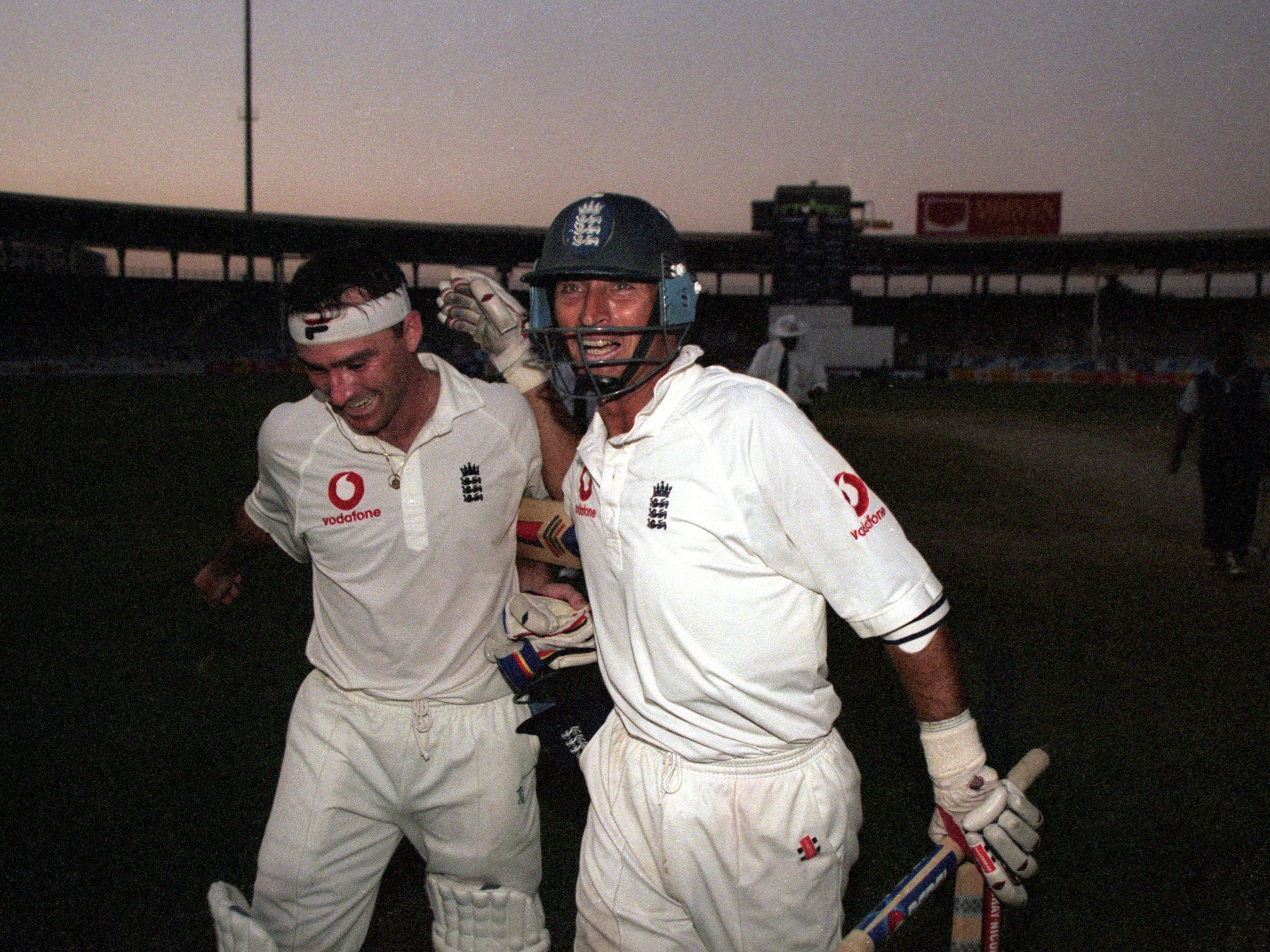Ashes 2013: It is plain to see that the umpires played it fairly and squarely by the book
Night was coming quicker than a Waqar Younis inswinger

Anyone who was present at the National Stadium in Karachi that night will know what it is like to play cricket in the dark. The real dark, where the ball cannot be seen until it passes before your eyes and the bowler has only a rough idea of where the batsman is.
It was December 2000 and England were playing Pakistan in the third and final Test, with the series all square at 0-0. A certain draw was turning into something utterly unforeseen, an England victory (now where was that to happen again?). Nasser Hussain’s side were chasing 176 to win in 44 overs, night was coming quicker than a Waqar Younis inswinger, and Pakistan were wasting time like printworkers in old-time Fleet Street.
Steve Bucknor, the senior umpire, was having none of it. Bucknor was still at the top of his game then; he garnered an automatic respect which is usually bestowed only on pontiffs. Seeing what Moin Khan, Pakistan’s captain, was up to, he told him to get on with it and he made it clear he was seeing this through.
England won with 15 balls to spare, the first team to beat Pakistan in Karachi, when Graham Thorpe, hero of the dark, squeezed one through the off side. It was one of those occasions which, later, millions of people claimed to be there to see. The truth is that there were about 1,000 scattered about the concrete edifice and none of them saw it either.
Thorpe said in the immediate aftermath that it was like an evening league match at Wrecclesham, the Surrey village where he played his formative cricket. By comparison conditions against Australia at The Kia Oval on Sunday when the umpires suspended play at 7.26pm were like a midday in late June.
The crowd, 20,000-odd of them (a million will again say they were there when England sealed their historic triumph) who had watched a magnificent day’s cricket understandably felt cheated. They booed for a bit but none of them stormed the pitch, perhaps because deep down they knew.
Umpires Kumar Dharmasena, the ICC Umpire of the Year, and Aleem Dar, his immediate predecessor in that station, applied the ICC regulations to a fault. Actually, they didn’t, since they had probably let play go on two overs more after the light had worsened to the level at which they called off play earlier in the match.
It was probably possible to play but that was not the point. They had to apply the regulation even-handedly and did so. England, in any case, did not deserve to win this match after their slow play on Friday – and the crowd must have known it.
Andy Flower, England’s coach, said yesterday that he thought the regulations governing the assessment of bad light were badly written. It is to be hoped he would have made the same point had the positions of the sides been reversed. At 206 for 5 with 21 wanted from four overs there was only one possible winner.
The ICC’s Test match playing conditions No 3.5 covers the issue. This makes it plain that the umpires shall be the final arbiters of whether it is fit for play.
It says: “If at any time the umpires together agree that the conditions of ground, weather or light are so bad that there is obvious and foreseeable risk to the safety of any player or umpire, so that it would be unreasonable or dangerous for play to take place, then they shall immediately suspend play, or not allow play to commence or to restart.”
In Flower’s view there are few occasions when safety is an issue and there could be a universal reading on the light meter and a strict policy of ensuring balance between bat and ball. Perhaps that would work, but all it would mean is playing on for longer and players being prepared to do so.
Flower said: “On the safety front there are many instances where you could play until it got dark, literally. So that doesn’t make any sense.”
Darren Lehmann, his Australia counterpart, thought that the umpires could have played it differently but observed that there had been light issues all series.
The trouble for umpires is the trouble they would be in if a player, probably a fielder, was hurt in the twilight because he could not see the ball. But Karachi on 11 December 2000 proves what was possible.
Join our commenting forum
Join thought-provoking conversations, follow other Independent readers and see their replies
Comments
Bookmark popover
Removed from bookmarks